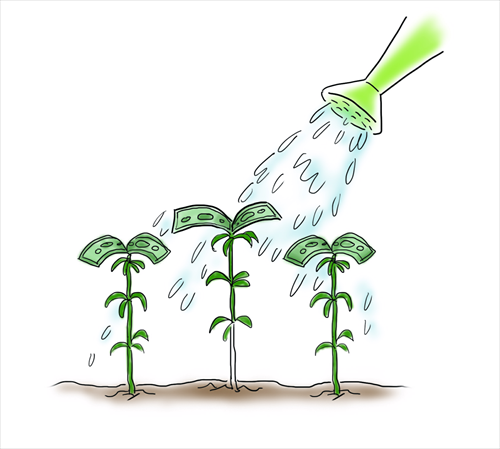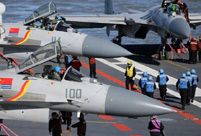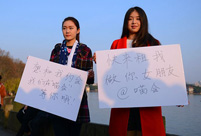

From Tuesday to Saturday, Chinese President Xi Jinping is making his first state visit in 2016 to three Middle Eastern countries - Saudi Arabia, Egypt and Iran. This is also Xi's first visit to the Middle East since he assumed the presidency in 2013. Saudi Arabia has not had a Chinese president on its turf for seven years, Egypt for 12 years, and Iran for 14 years.

Illustration: Liu Rui/GT
The selection of the three countries is well-considered. They each play their own role in China's Middle East policy.
Saudi Arabia, since it controls Mecca and Medina, the birthplace of Islam, wields decisive political and religious heft in the Arab world. Besides, as China's largest supplier of crude oil, Riyadh maintains a close and mutually beneficial relationship with Beijing. Although the country is troubled by declining oil prices and geopolitical spats, Saudi Arabia has revealed greater potential for development after King Salman succeeded the throne last year. China values Saudi Arabia's leverage in the Arab world, and seeks extensive economic cooperation in the future.
Iran, located at the crossroads of China's " the Belt and Road " initiative, has established and preserved robust trade ties with China, the largest import destination of Iran, despite severe economic sanctions imposed by the US. However, since the historic nuclear reconciliation was reached, the lifting of sanctions will give Iran a major impetus to economic takeoff. China expects to take the chance and ramp up the bilateral ties up to a higher notch.
Egypt, haunted by political and social problems since former president Hosni Mubarak was ousted in mass protests in 2011, has just regained stability after Abdel Fattah el-Sisi was sworn into office as Egyptian president in 2014. Desperate for an all-out recovery, Egypt needs solid partnerships to boost its economy, especially in terms of infrastructure, manufacturing, funds and technologies.
As Egypt's largest trade partner since 2014, China is trustworthy. China is trying to introduce its top-notch capability for infrastructure construction into the international market through the " the Belt and Road " initiative, which Egypt can rely on to meet its own huge needs. Plus, the Arab League is headquartered in Cairo, and Egypt was the first Arab and African country that recognized the People's Republic of China. The traditional friendship and the outlook for multifaceted economic cooperation will herald more substantial bilateral ties.
Xi's visit to the three countries sends out a signal that China's involvement in the Middle East has no exterior motives other than economic reciprocity and political goodwill.
Recent years have seen China tuning its Middle East policy to be more engaged. It is commensurate with China's expanding role in international platforms, where Beijing will and should assume more responsibilities. As for the Middle East, a global hotspot, Beijing is trying to find its niche to be a constructive player.
China is employing a more proactive approach, other than simply relying on multilateral mechanisms such as the UN Security Council like it always does, to nourishing all-party trust in the Middle East. That is why earlier this month, Beijing invited representatives from the Syrian government and opposition to come to China for peace talks.
Unlike some other major powers which have rival interests in the Middle East, China considers this region not only as a lifeline of energy and a market for economic cooperation, but also a platform where it can be a responsible global player to generate peace and stability. In stark contrast with other major powers, China has a good reputation in the Middle East for its impartial position in regional affairs, constructive contribution to regional balance, and active response to multi-party needs.
China sticks to three principles of involvement, not intervention, in the Middle East. First, Beijing won't be militarily engaged; Second, it won't impose its own values and thoughts on Middle Eastern countries; Third, China maintains impartiality between conflicting sides. Sticking to these principles gives China leeway to avoid being embroiled in the deep mire of the Middle East, which means China can skillfully help reconcile different appeals and mediate between multiple stakeholders.
Since the leadership shift in 2013, Xi has visited almost every major part of the world. This Middle East visit makes China's all-round diplomacy a complete picture. By gaining more initiative in the region, China will shape its role as a contributor, helping the Middle East to restore peace and stability.
The author is former Chinese ambassador to Iran and the United Arab Emirates.
(Source: Global Times and People’s Daily)
 PLA holds joint air-ground military drill
PLA holds joint air-ground military drill Charming female soldiers on Xisha Islands
Charming female soldiers on Xisha Islands Beautiful skiers wear shorts in snow
Beautiful skiers wear shorts in snow Getting close to the crew on China's aircraft carrier
Getting close to the crew on China's aircraft carrier Chinese stewardess celebrate test flight at Nansha Islands
Chinese stewardess celebrate test flight at Nansha Islands World's first 'underwater skyscraper'
World's first 'underwater skyscraper'  Pentagonal Mart becomes the largest vacant building in Shanghai
Pentagonal Mart becomes the largest vacant building in Shanghai "Rent me as your girlfriend!"
"Rent me as your girlfriend!" A beauty's dancing youth
A beauty's dancing youth Top 20 hottest women in the world in 2014
Top 20 hottest women in the world in 2014 Top 10 hardest languages to learn
Top 10 hardest languages to learn 10 Chinese female stars with most beautiful faces
10 Chinese female stars with most beautiful faces China’s Top 10 Unique Bridges, Highways and Roads
China’s Top 10 Unique Bridges, Highways and Roads Xi arrival shows commitment to Mideast
Xi arrival shows commitment to Mideast Chinese firm aims to build ‘world’s largest cloning factory’
Chinese firm aims to build ‘world’s largest cloning factory’ Qinghai Lake aircraft ban reveals risky trend in wildlife photography
Qinghai Lake aircraft ban reveals risky trend in wildlife photography Foreigners flock to China for cancer, chronic disease treatments
Foreigners flock to China for cancer, chronic disease treatmentsDay|Week